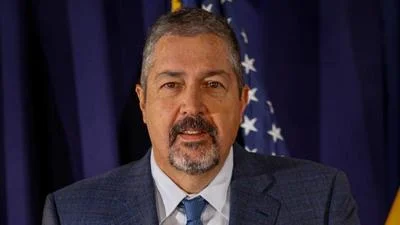Ben Neary Conservation Director | New Mexico Wildlife Federation
David Lightfoot, a senior collections manager for arthropods at the Museum of Southwestern Biology and associate professor in biology at the University of New Mexico, supports increased state measures for the protection of invertebrate species. He emphasized, “Invertebrates are the base of terrestrial and aquatic food webs in New Mexico... So they are critically important.”
Lightfoot will present his views on invertebrate protection at the New Mexico Wildlife Federation’s (NMWF) event, “Wildlife Wednesday," occurring on April 9 at Marble Brewery in Albuquerque. The NMWF, in collaboration with other conservation groups, has backed Senate Bill 5 to reform the state wildlife agency, boost its funding, and extend its reach to include invertebrates.
For over three decades, Lightfoot has studied grasshopper populations at the Sevilleta National Wildlife Refuge, observing that climate change is affecting these communities. He noted, “Some species have declined considerably... And overall, the grasshopper communities are... the result of global warming.”
Invertebrates are crucial, serving as food for fish and birds such as quail and turkey. Lightfoot is also engaged in research on pollinating insects, determining which species require conservation efforts. New Mexico plans to finalize its Wildlife Action Plan this year, incorporating input from Lightfoot and his team about vital pollinating insect species.
“We are going to continue working with Game and Fish,” Lightfoot said, signaling the ongoing efforts to protect insect species in New Mexico.
The legislative changes introduced will also rename the New Mexico Department of Game and Fish to the New Mexico Department of Wildlife by July 2026, marking a shift in focus toward comprehensive wildlife management. Lightfoot remarked, “It’s going to mean that they’re going to have more considerations for any kind of projects that might have adverse impacts.”
The Sacramento Mountains checkerspot butterfly was listed as an endangered species by the U.S. Fish and Wildlife Service in early 2023. Lightfoot believes state management will streamline the oversight of invertebrate species, making it more effective than federal control.
“I expect many more species will get recognition through the state that would not be achieved at the federal level," Lightfoot emphasized. Senate Bill Five is anticipated to facilitate research and enhance public knowledge about invertebrates like native bees.









